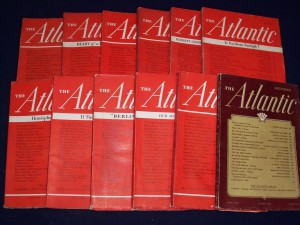 To Ervin Paul Hexner
To Ervin Paul Hexner
Via Santo Stefano Rotondo, 6
Rome. February 28, 1949
Dear Mr. Hexner,
The pieces that have been appearing in The Atlantic are not “essays” but fragments of books, the one you refer to being the Epilogue to my autobiography. Others have come from Dialogues in Limbo, and some may follow from Dominations & Powers. They have appeared because my publishers think it advisable to keep my name before the public, and my books are long-winded and I am now slower than ever in finishing them.
If you have dipped at all into my philosophy, you know that I am not a dogmatist in morals. It is for each man’s nature—not for his consciousness or opinion—to determine what his “true” interests are. It is what I call his “primal Will”, which is unconscious, that decides the matter, and then the possibility of realizing this Will is determined by circumstances. This unconscious nature or Will may well be unselfish or social or, as the Indians maintain, mystically negative, so that every mans “true” interest is to become Brahman, or the Absolute. I think this is the “true” interest only of a very special Will, which if dominant would destroy all Will or life, and so would not justify itself to itself. There are forms of natural happines that do so.
I meant to answer your letter in a few words, but the subject has made me run on automatically.
Yours sincerely,
G Santayana
From The Letters of George Santayana: Book Eight, 1948-1952. Cambridge, MA: The MIT Press, 2008.
Location of manuscript: The Pennsylvania State University Libraries, University Park PA
